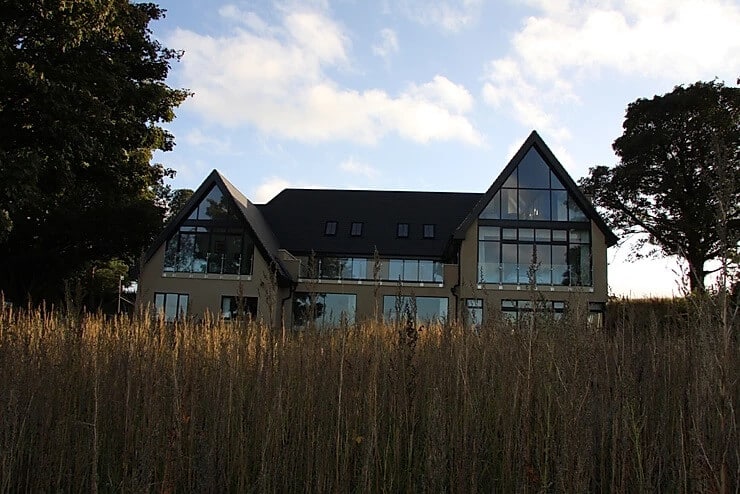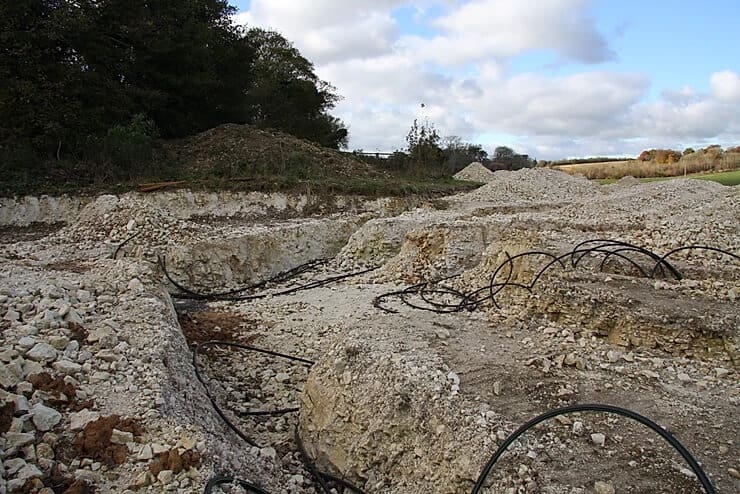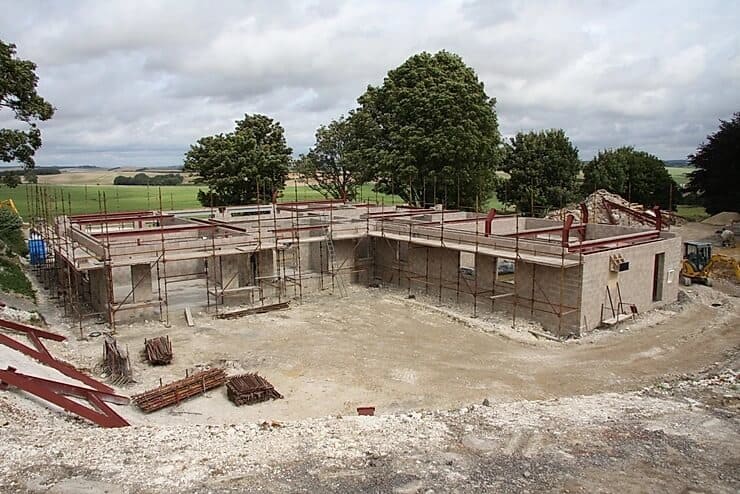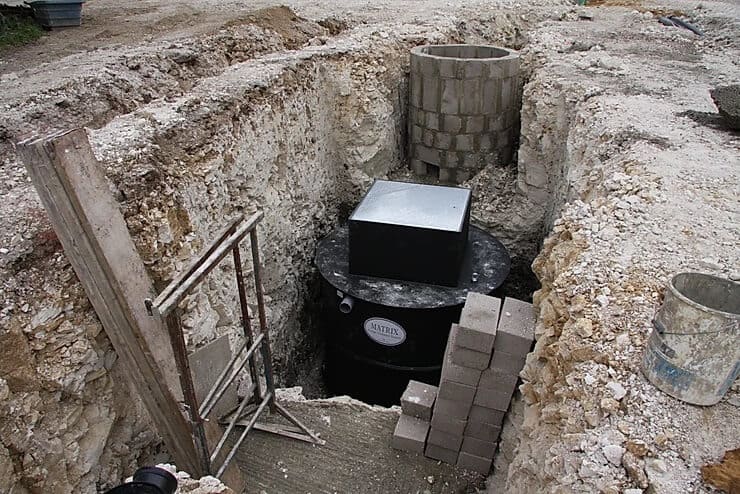Renewable heating technologies like ground source heat pumps have a significant role to play in mitigating climate change. Innovative applications of ground source heat pumps are creating opportunities for the UK housing sector to enjoy sustainable, controllable, durable, and efficient heating solutions, with an infrastructure that will last for a 100 years from now.
A ground source heat pump was just one of the natural renewable sustainable resources installed at our Berkshire New Build Home and Stable Yard Project.
Ground source heat pumps use solar heat that has been absorbed by the ground or air, which is transferred (pumped) and used to heat up residential or commercial buildings. Heat pumps are also effective for heating water. The technology used is similar to that of a refrigerator only this time the end result is heat instead of cold air.
In the case of a ground source heat pump, the energy comes from passing a glycol/water mix through pipework buried in the ground. The temperature of the earth tends to be very stable 1m deep, and there is minimal variation in this temperature across the seasons. The fluid in the pipework absorbs energy from its surroundings and delivers this to the heat pump within the property, where it is used in the process described in the earlier paragraph. After the energy has been given off to the heat pump the cooled fluid passes back into the pipework to collect more heat.
BIODIGESTER
A Biodigester was installed as they are superb solutions for rural homes. The biodigester system utilises organic waste, particularly animal and human excreta, to produce fertiliser and biogas. A biodigester consists of an airtight, high-density polyethylene container within which excreta diluted in water flow continuously and are fermented by microorganisms present in the waste. The fermentation process is anaerobic, i.e., it takes place without oxygen, and the bacteria responsible for decomposition are methanogenic (i.e., they produce methane, also known as biogas). The processed manure is an organic, pathogen-free fertiliser that is rich in nitrogen, phosphorus and potassium. The products are primarily for self-consumption on farms.





